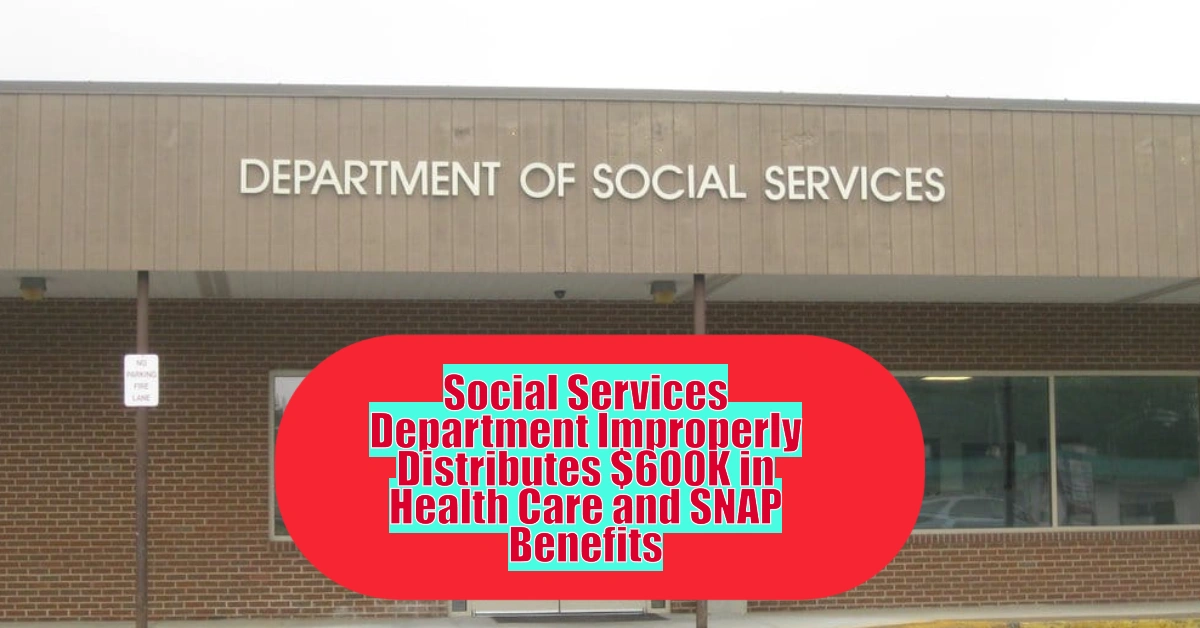The Connecticut Department of Social Services (DSS) is facing a significant issue regarding its management of public assistance programs. In the fiscal years 2023 and 2024, DSS inadvertently distributed hundreds of thousands of dollars in benefits to individuals who were ineligible for programs such as the Children’s Health Insurance Program (CHIP), Medicaid, and the Supplemental Nutrition Assistance Program (SNAP). Ineligible recipients included those who had aged out of these programs, earned too much income to qualify, or, in some instances, had already passed away.
Table of Contents
Serious Financial Overpayments and Missed Eligibility Checks
A recent State of Connecticut Single Audit Report reveals a troubling pattern of improper payments. In total, the state overpaid approximately $10,000 in SNAP and Medicaid benefits to 11 deceased individuals. Additionally, the DSS was found to have spent more than $400,000 on “questionable” costs related to CHIP and an astonishing $600,000 on payments for adults who had aged out of the program. Furthermore, the report highlights that over $8,700 was spent on ineligible clients, primarily within the SNAP and Medicaid programs.
One of the most concerning findings of the audit is that, in some cases, unauthorized individuals took advantage of these overpayments. Of the 11 deceased individuals who continued to receive benefits, five cases were marked by unauthorized people using the SNAP benefits intended for the deceased.
The Recurring Issue: A Longstanding Problem
This issue is not new to the DSS. Over the years, auditors have repeatedly flagged improper distribution of funds, particularly with SNAP benefits. The Auditor of Public Accounts has identified similar issues in more than two dozen past audits, with the most recent one in 2023 also pointing to SNAP mismanagement.
The root of the problem lies in the DSS’s inability to access the state’s death data, making it difficult for the department to effectively verify dates of death. Additionally, the DSS system for enrolling individuals in these programs automatically marks alerts as “complete” if they are not addressed within a set number of days, which creates opportunities for errors to go unnoticed.
CHIP and Aging Out: Another Persistent Issue
When it comes to CHIP, the DSS is facing its fifth audit report pointing out a significant issue: adults who have aged out of the program continue to receive payments. The previous audit also flagged this as a major concern. Auditors have attributed this problem to the DSS’s lack of a reliable method for verifying clients’ third-party insurance, allowing individuals to remain on the program despite no longer qualifying.
Shocking Leak Reveals Musk’s Attack on Social Security
Many Are Not Receiving the $967 SSI Payment This Week in March Due to This Issue
Social Security Tax Cap Increases for 2025 See the New Maximum Limit
Retirement Age for Full Social Security Benefits is Neither 65 Nor 67
Auditor Recommendations for Reform
In response to these findings, auditors have recommended a series of measures to prevent further mismanagement. First, they urge the DSS to strengthen its internal controls for CHIP payments, ensuring that only eligible individuals continue to receive benefits. To address the issue of deceased individuals receiving benefits, auditors advise that the DSS take steps to ensure it has access to all necessary information regarding eligibility, income, and death records.
Additionally, auditors have called for the return of federal reimbursements for the “unallowable expenditures” that were claimed under Medicaid, COVID-19 Medicaid, and SNAP.
A Call for Comprehensive Reform
The ongoing issues within Connecticut’s DSS programs are a reminder of the critical importance of maintaining effective and accurate eligibility verification systems. As the state moves forward, it is imperative that the DSS takes swift action to address these issues, reduce the potential for fraud, and ensure that benefits are distributed only to those who truly need them. The path to resolving these issues will require investing in better data-sharing tools, improving internal controls, and implementing more stringent procedures to monitor eligibility in real-time. Without these reforms, Connecticut risks continuing to waste taxpayer dollars on improper payments, undermining the trust and effectiveness of its social services system.
